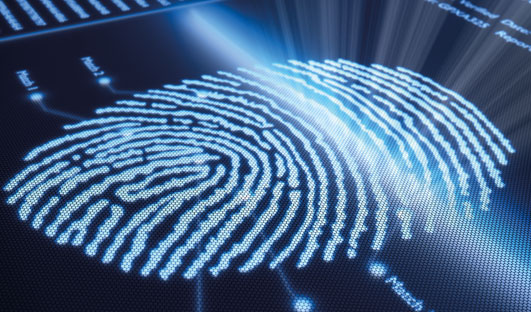The future of policing

As An Garda Síochána celebrates its 100th anniversary, it is timely to consider what the future holds for policing, writes Shane Mohan, Partner and Head of Government and Public Services at Deloitte.
Despite the turmoil in which it was founded, the challenges it successfully faced as it established itself as an unarmed force, through to more recent times with the threat of international terrorism, organised crime on a global scale and a rapidly changing political, social and technological landscape, An Garda Síochána has secured and maintained the backing and support of the overwhelming majority of the people it serves. It has consistently shown itself to be deeply rooted in our society and communities.
In celebrating its achievements and learning from the challenges of the past, An Garda Síochána is now preparing for the next 100 years. Like police and security services globally, the need for transformation is recognised to enable An Garda Síochána to build the capabilities, structures, ways of working, partnerships, and high performing culture necessary to meet the challenges of modern society.
Deloitte’s global research into both the future of criminal justice and more particularly the future of policing provides insights into the trends impacting on policing globally, and the capabilities police services are building.
Global trends and their implications for policing
Our research has identified a number of mega-trends which will significantly influence policing now and into the future, including:
Demographic shifts and ongoing urbanisation: population movements, an ageing population, an increasingly multi-cultural society, increased urbanisation and associated social dynamics all present challenges for policing and the allocation of police resources.
A globalised economy: the quicker, cheaper movement of goods and people also present opportunity for crime, be that the movement of illegal goods, or financial criminal activity targeted at businesses and individuals. Recent times events have also highlighted the importance of the security of critical national infrastructure and supply chains. As an economy highly dependent on international trade, a safe and secure society is particularly important for economic wellbeing in Ireland.
Technological acceleration and data abundance: an increasing volume of human activity now takes place over digital channels with a further proliferation in this trend over the course of the pandemic. As our lives and finances continue to shift online crime will mirror this. However, more positively, the use of digital technology, social media and data have proved very effective for police services globally in preventing and detecting crime.
Geo-political events: international tensions, global health crises, climate change and increased focus on national identities and separatism all have the potential to lead to significant social disruption. The positive and negative effects and influence of social media on these events are well documented.
Trust and transparency: Trust in government, and its institutions, is a critical challenge globally. Given the powers and role of police services in our society, they must be seen to act to the highest levels of trust, transparency, and integrity. Outside of formal oversight structures, police officers are under constant scrutiny with proliferation of video phones and social media.
Capabilities
How police services address these and other trends will be determined, among other things, by the capabilities they build. We have considered these capabilities under three lenses: workforce, digital transformation, and structures and collaboration.
Workforce capabilities: as with many public and private sector organisations, police services globally are considering the skills and knowledge required in the future. The emphasis is shifting from a focus on pure police officer number to much more sophisticated workforce planning which match mission and priorities, with demand data and workforce capabilities. Our research has indicated five areas of capability development among police services globally: citizen relationship management; workforce relationship management; relational, influencing and collaborative working capabilities; digital investigative capabilities; and data management and analytical skills.
Digital transformation capabilities: in a world where almost every crime can leave a digital footprint, or technology can otherwise facilitate prevention or detection, police services can harness digital technology to better enable them to do their jobs. These include:
• Citizen relationship management: everything from analytically optimising data from emergency calls through to the use of social media and other channels to engage with the public.
• Workforce enablement: as the complexity of policing increases, police officers need the work tools to perform their jobs. Investment in technology to enable better case management, investigation management, and information and intelligence sharing are critical.
• Mobile working tools: police services globally have and continue to make great strides in enabling their officers and members to do their job in the field and reduce subsequent administration.
• Data analytic capability: digitisation has led to vast amount of data being created. On one hand this is a significant challenge for police services: understanding, managing and appropriately accessing data. On the other hand, through the use of analytical tools, artificial intelligence and automation this data can be used to predict and track criminal activity, and prevent, detect and prosecute criminals.

“Like police and security services globally, the need for transformation is recognised to enable An Garda Síochána to build the capabilities, structures, ways of working, partnerships, and high performing culture necessary to meet the challenges of modern society.”
Structures and collaboration: the final capability we consider is structures and collaboration, including partnerships and innovation. How police services organise themselves both geographically and by competency, and how flexible and adaptable those structures are has a significant impact on effectiveness. Police services globally are also seeing the benefits of greater and more structured collaboration internally adapting a more ‘networked policing model’, with other polices services, other public bodies, academia, and the private sector. Our society and technology are advancing rapidly, and criminals have shown the ability to leverage and profit from this change. Innovation at all levels of policing is a critical capability for police services.
Conclusion
Accelerating technology and societal change is already creating an environment very different to the last century. Globally we have seen how embracing innovation, collaborating in new ways and advances in technology have brought different ways of working for police services. Developing new capabilities will take time, and the right sequencing of changes and investments to support the future of policing is important. Investments must be guided by a clear view of what the public value and need. With increased resources and capabilities, policing must be as clear as possible about its aspirations, priorities, and mission. For An Garda Síochána, that mission is to “keep people safe.”
T: 01 417 2200
E: smohan@deloitte.ie
W: deloitte.ie






